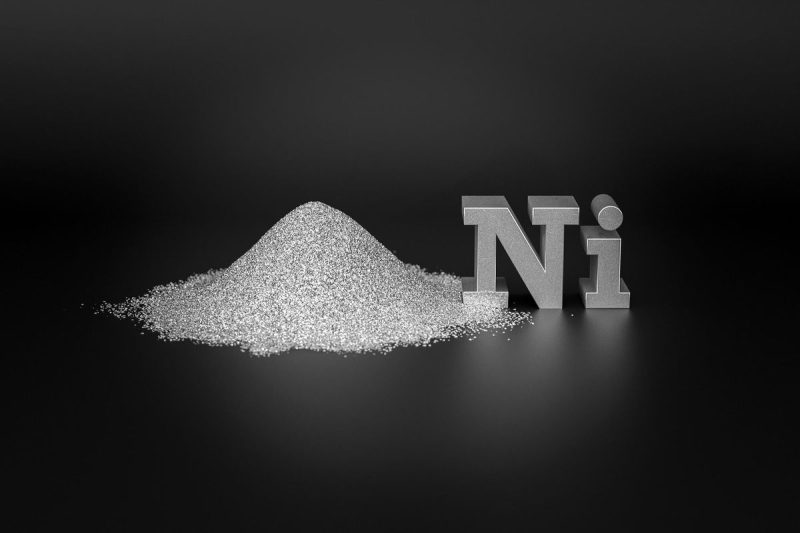January 24, 2024
Unraveling Nickel’s Hidden Potential: 10 Surprising Uses in 2024
 Nickel is a versatile metal that is used in various industries for a wide range of applications. With its exceptional properties and characteristics, nickel has become an essential component in modern technologies. From manufacturing to everyday consumer products, this article will explore the diverse uses of nickel in different fields as of 2024.
1. Stainless Steel Production:
One of the primary uses of nickel is in the production of stainless steel. Nickel enhances the strength and corrosion resistance of steel, making it an ideal material for various applications. The addition of nickel to stainless steel gives it a lustrous appearance, high heat resistance, and excellent durability. Stainless steel is used in appliances, cookware, cutlery, construction materials, and even in the automotive industry.
2. Batteries:
Nickel is a fundamental component in rechargeable batteries, specifically in nickel-metal hydride (NiMH) and nickel-cadmium (NiCd) batteries. These batteries are commonly used in portable electronic devices, power tools, hybrid vehicles, and even stationary energy storage systems. Nickel's high energy density and ability to store and release electrons efficiently make it an indispensable element in the battery industry.
3. Aerospace and Defense:
Nickel alloys are extensively used in the aerospace and defense sectors due to their exceptional strength, heat resistance, and corrosion resistance. These alloys are utilized in turbine engines, exhaust systems, aircraft components, and even rocket nozzles. Nickel's ability to withstand extreme temperatures and harsh environments makes it a vital material for ensuring the reliability and safety of aerospace and defense applications.
4. Electrical and Electronics:
Nickel is widely used in the electrical and electronics industry for its excellent conductivity and resistance to oxidation. It is utilized in electrical contacts, connectors, circuit breakers, and switchgear. Additionally, nickel is a key component in the production of magnetic materials, such as permalloy and mu-metal, which are used in electrical transformers and shielding applications.
5. Chemical Industry:
Nickel plays a crucial role in the chemical industry, primarily through its use as a catalyst. Nickel catalysts are employed in various chemical processes, including hydrogenation, ammonia production, and the synthesis of plastics. These catalysts enable efficient and selective reactions, leading to the production of countless chemicals and materials that are used in everyday life.
6. Coinage:
Nickel is a common component in coins, particularly in the alloy called cupronickel, which is composed of copper and nickel. This alloy provides durability and resistance to corrosion, ensuring that coins remain in circulation for extended periods. Cupronickel is used in many countries for denominations of low-value coins, where its cost-effectiveness and longevity make it an ideal choice.
7. Medical Applications:
Nickel is utilized in various medical applications, such as medical implants and surgical instruments. Nickel alloys, such as Nitinol, have unique shape memory properties, allowing them to return to their original shape after deformation. This property makes Nickel alloys ideal for applications like stents, dental braces, and orthopedic implants.
In conclusion, nickel is an incredibly versatile metal that finds its use across a wide array of industries. From stainless steel production to batteries, aerospace, electronics, and even medical applications, nickel's exceptional properties and characteristics make it an indispensable material in the modern world. As technology continues to advance, the demand for nickel is expected to grow steadily, driven by its essential role in numerous vital applications.
Nickel is a versatile metal that is used in various industries for a wide range of applications. With its exceptional properties and characteristics, nickel has become an essential component in modern technologies. From manufacturing to everyday consumer products, this article will explore the diverse uses of nickel in different fields as of 2024.
1. Stainless Steel Production:
One of the primary uses of nickel is in the production of stainless steel. Nickel enhances the strength and corrosion resistance of steel, making it an ideal material for various applications. The addition of nickel to stainless steel gives it a lustrous appearance, high heat resistance, and excellent durability. Stainless steel is used in appliances, cookware, cutlery, construction materials, and even in the automotive industry.
2. Batteries:
Nickel is a fundamental component in rechargeable batteries, specifically in nickel-metal hydride (NiMH) and nickel-cadmium (NiCd) batteries. These batteries are commonly used in portable electronic devices, power tools, hybrid vehicles, and even stationary energy storage systems. Nickel's high energy density and ability to store and release electrons efficiently make it an indispensable element in the battery industry.
3. Aerospace and Defense:
Nickel alloys are extensively used in the aerospace and defense sectors due to their exceptional strength, heat resistance, and corrosion resistance. These alloys are utilized in turbine engines, exhaust systems, aircraft components, and even rocket nozzles. Nickel's ability to withstand extreme temperatures and harsh environments makes it a vital material for ensuring the reliability and safety of aerospace and defense applications.
4. Electrical and Electronics:
Nickel is widely used in the electrical and electronics industry for its excellent conductivity and resistance to oxidation. It is utilized in electrical contacts, connectors, circuit breakers, and switchgear. Additionally, nickel is a key component in the production of magnetic materials, such as permalloy and mu-metal, which are used in electrical transformers and shielding applications.
5. Chemical Industry:
Nickel plays a crucial role in the chemical industry, primarily through its use as a catalyst. Nickel catalysts are employed in various chemical processes, including hydrogenation, ammonia production, and the synthesis of plastics. These catalysts enable efficient and selective reactions, leading to the production of countless chemicals and materials that are used in everyday life.
6. Coinage:
Nickel is a common component in coins, particularly in the alloy called cupronickel, which is composed of copper and nickel. This alloy provides durability and resistance to corrosion, ensuring that coins remain in circulation for extended periods. Cupronickel is used in many countries for denominations of low-value coins, where its cost-effectiveness and longevity make it an ideal choice.
7. Medical Applications:
Nickel is utilized in various medical applications, such as medical implants and surgical instruments. Nickel alloys, such as Nitinol, have unique shape memory properties, allowing them to return to their original shape after deformation. This property makes Nickel alloys ideal for applications like stents, dental braces, and orthopedic implants.
In conclusion, nickel is an incredibly versatile metal that finds its use across a wide array of industries. From stainless steel production to batteries, aerospace, electronics, and even medical applications, nickel's exceptional properties and characteristics make it an indispensable material in the modern world. As technology continues to advance, the demand for nickel is expected to grow steadily, driven by its essential role in numerous vital applications.
If you would like to delve into the world of investment topics , go to our partner project Wall Street Wizardry


